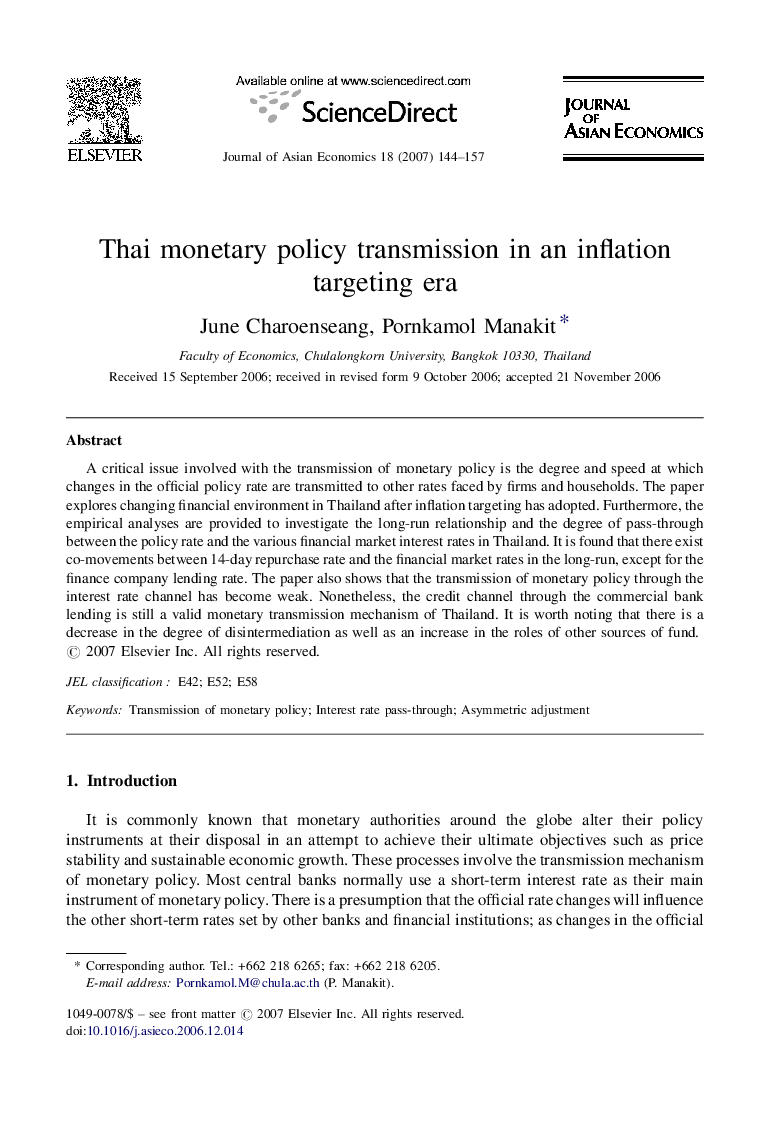| Article ID | Journal | Published Year | Pages | File Type |
|---|---|---|---|---|
| 5087969 | Journal of Asian Economics | 2007 | 14 Pages |
Abstract
A critical issue involved with the transmission of monetary policy is the degree and speed at which changes in the official policy rate are transmitted to other rates faced by firms and households. The paper explores changing financial environment in Thailand after inflation targeting has adopted. Furthermore, the empirical analyses are provided to investigate the long-run relationship and the degree of pass-through between the policy rate and the various financial market interest rates in Thailand. It is found that there exist co-movements between 14-day repurchase rate and the financial market rates in the long-run, except for the finance company lending rate. The paper also shows that the transmission of monetary policy through the interest rate channel has become weak. Nonetheless, the credit channel through the commercial bank lending is still a valid monetary transmission mechanism of Thailand. It is worth noting that there is a decrease in the degree of disintermediation as well as an increase in the roles of other sources of fund.
Related Topics
Social Sciences and Humanities
Economics, Econometrics and Finance
Economics and Econometrics
Authors
June Charoenseang, Pornkamol Manakit,
